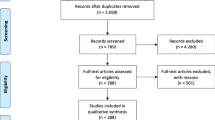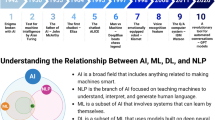Abstract
Artificial intelligence (AI) is an innovative tool with the potential to impact medical physicists’ clinical practices, research, and the profession. The relevance of AI and its impact on the clinical practice and routine of professionals in medical physics were evaluated by medical physicists and researchers in this field. An online survey questionnaire was designed for distribution to professionals and students in medical physics around the world. In addition to demographics questions, we surveyed opinions on the role of AI in medical physicists’ practices, the possibility of AI threatening/disrupting the medical physicists’ practices and career, the need for medical physicists to acquire knowledge on AI, and the need for teaching AI in postgraduate medical physics programmes. The level of knowledge of medical physicists on AI was also consulted. A total of 1019 respondents from 94 countries participated. More than 85% of the respondents agreed that AI would play an essential role in medical physicists’ practices. AI should be taught in the postgraduate medical physics programmes, and that more applications such as quality control (QC), treatment planning would be performed by AI. Half of the respondents thought AI would not threaten/disrupt the medical physicists’ practices. AI knowledge was mainly acquired through self-taught and work-related activities. Nonetheless, many (40%) reported that they have no skill in AI. The general perception of medical physicists was that AI is here to stay, influencing our practices. Medical physicists should be prepared with education and training for this new reality.



Similar content being viewed by others
Data availability
The data may be made available if requested.
Abbreviations
- AAPM:
-
American Association of Physicists in Medicine
- ACPSEM:
-
Australasian College of Physical Scientists and Engineers in Medicine
- AFOMP:
-
Asia-Oceania Federation of Organizations for Medical Physics
- ALFIM:
-
Asociación Latinoamericana de Física Médica
- EFOMP:
-
European Federation of Organisations for Medical Physics
- FAMPO:
-
Federation of African Medical Physics Organizations
- IOMP:
-
International Organization for Medical Physics
- IPEM:
-
Institute of Physics and Engineering in Medicine
- MEFOMP:
-
Middle East Federation of Medical Physics
- SEAFOMP:
-
South East Asian Federation of Organizations for Medical Physics
References
Thompson RF, Valdes G, Fuller CD, Carpenter CM, Morin O, Aneja S, Lindsay WD, Aerts HJWL, Agrimson B, Deville C, Rosenthal SA, Yu JB, Thomas CR (2018) Artificial intelligence in radiation oncology: a specialty-wide disruptive transformation? Radiother Oncol 129(3):421–426
Arimura H, Soufi M, Kamezawa H, Ninomiya K, Yamada M (2018) Radiomics with artificial intelligence for precision medicine in radiation therapy. J Radiat Res 60(1):150–157
Pang T, Wong JHD, Ng WL, Chan CS (2020) Deep learning radiomics in breast cancer with different modalities: overview and future. Expert Syst Appl 158:113501
Pang T, Wong JHD, Ng WL, Chan CS (2021) Semi-supervised GAN-based radiomics model for data augmentation in breast ultrasound mass classification. Comput Methods Prog Biomed 203:106018
Xing L, Krupinski EA, Cai J (2018) Artificial intelligence will soon change the landscape of medical physics research and practice. Med Phys 45(5):1791–1793
Recht M, Bryan RN (2017) Artificial intelligence: threat or boon to radiologists? J Am Coll Radiol 14(11):1476–1480
Avanzo M, Trianni A, Botta F, Talamonti C, Stasi M, Iori M (2021) Artificial intelligence and the medical physicist: welcome to the machine. Appl Sci 11(4):1691
Cui S, Tseng H-H, Pakela J, Ten Haken RK, El Naqa I (2020) Introduction to machine and deep learning for medical physicists. Med Phys 47(5):e127–e147
Diaz O, Guidi G, Ivashchenko O, Colgan N, Zanca F (2021) Artificial intelligence in the medical physics community: an international survey. Phys Med 81:141–146
Kortesniemi M, Tsapaki V, Trianni A, Russo P, Maas A, Källman HE, Brambilla M, Damilakis J (2018) The European Federation of Organisations for Medical Physics (EFOMP) White Paper: big data and deep learning in medical imaging and in relation to medical physics profession. Phys Med 56:90–93
Zanca F, Hernandez-Giron I, Avanzo M, Guidi G, Crijns W, Diaz O, Kagadis GC, Rampado O, Lønne PI, Ken S, Colgan N, Zaidi H, Zakaria GA, Kortesniemi M (2021) Expanding the medical physicist curricular and professional programme to include Artificial Intelligence. Phys Med 83:174–183
Alvarenga BL, Almeida RT, Gonçalves OD (2020) Análise Descritiva do Perfil dos Alunos do Bacharelado em Física Médica e em Física da Universidade Federal do Rio de Janeiro. Revista Brasileira de Ensino de Física 42
Xing L, Goetsch S, Cai J (2021) Artificial intelligence should be part of medical physics graduate program curriculum. Med Phys 48(4):1457–1460
Abdullah R, Fakieh B (2020) Health care employees’ perceptions of the use of artificial intelligence applications: survey study. J Med Internet Res 22(5):e17620–e17620
Fan W, Liu J, Zhu S, Pardalos PM (2020) Investigating the impacting factors for the healthcare professionals to adopt artificial intelligence-based medical diagnosis support system (AIMDSS). Ann Oper Res 294(1):567–592
Castagno S, Khalifa M (2020) Perceptions of artificial intelligence among healthcare staff: a qualitative survey study. Front Artif Intell. https://doi.org/10.3389/frai.2020.578983
Laï MC, Brian M, Mamzer MF (2020) Perceptions of artificial intelligence in healthcare: findings from a qualitative survey study among actors in France. J Transl Med 18(1):14
Sit C, Srinivasan R, Amlani A, Muthuswamy K, Azam A, Monzon L, Poon DS (2020) Attitudes and perceptions of UK medical students towards artificial intelligence and radiology: a multicentre survey. Insights Imaging 11(1):14
Pinto Dos Santos D, Giese D, Brodehl S, Chon SH, Staab W, Kleinert R, Maintz D, Baeßler B (2019) Medical students’ attitude towards artificial intelligence: a multicentre survey. Eur Radiol 29(4):1640–1646
Liyanage H, Liaw S-T, Jonnagaddala J, Schreiber R, Kuziemsky C, Terry AL, de Lusignan S (2019) Artificial intelligence in primary health care: perceptions, issues, and challenges. Yearb Med Inform 28(01):041–046
Wong JHD, Ng KH, Sarasanandarajah S (2019) Survey of postgraduate medical physics programmes in the Asia-Oceania region. Phys Med 66:21–28
Acknowledgements
We thank the following organisations for publicising and disseminating the survey: AAPM, ACPSEM, AFOMP, ALFIM, EFOMP, FAMPO, IOMP, IPEM, MEFOMP, and SEAFOMP. We also thank all the respondents who supported this survey.
Funding
No source of funding
Author information
Authors and Affiliations
Contributions
KHN, JCS, VP conceived the idea, designed and executed the survey. JHDW analysed the data. JCS, JHDW, KHN, and VP prepared, edited the manuscript and approved the final submitted manuscript.
Corresponding author
Ethics declarations
Conflict of interest
The authors declare that they have no conflict of interest
Ethics approval
This research was approved by the University of Malaya Research Ethics Committee (UM.TNC 2/UMREC).
Informed consent
Informed consent was obtained from all individual participants included in the survey.
Additional information
Publisher's Note
Springer Nature remains neutral with regard to jurisdictional claims in published maps and institutional affiliations.
Appendix
Appendix
Please rate your agreement with the following questions: *Answer range from: 1(Strongly agree) to 5 (Strongly disagree) | ||
1 | AI will play an important role in the practice of medical physicists.* | |
2 | More and more applications such as quality control, treatment planning will be performed by AI.* | |
3 | In my opinion, AI will threaten/disrupt the medical physicists’ practices and career.* | |
4 | All medical physicists should acquire at least some basic knowledge of AI.* | |
5 | AI should be taught in the postgraduate medical physics programme.* | |
6 | I have a basic understanding of AI (relevant to my field).* | |
7 | I have a working knowledge of AI (relevant to my field).* | |
8 | I have relevant skills in AI.* | |
9 | I am proficient in AI (able to design, code and implement).* | |
10 | I understand the limitations of AI.* | |
11 | My knowledge of AI is: | |
A | Self-taught | |
B | Learned by attending courses | |
C | Learned from postgraduate training | |
D | Learned from work-related activites | |
E | No knowledge | |
12 | My skill in AI is developed through: | |
A | Self-taught | |
B | Learned by attending courses | |
C | Learned from postgraduate training | |
D | No skill | |
13 | I am ready to learn and apply AI in my practice. * | |
Tell us about you: | ||
14 | I am: | |
A | Male | |
B | Female | |
15 | My age is: [Free number replies, acceptable from 18 to 100 years old] | |
16 | My highest qualification(s) attained: | |
A | PhD | |
B | Master | |
C | Bachelor | |
D | Board certification | |
17 | I am currently a/an: | |
A | Academic physicist | |
B | Clinical physicist | |
C | Postgraduate student | |
D | Trainee/resident | |
E | Retired | |
F | Other | |
18 | I am affiliated with: | |
A | University | |
B | Hospital | |
C | Research institute | |
D | Government agency | |
E | Regulatory body | |
F | Consultancy | |
G | Other | |
19 | I am from [Choose one option from countries of the world] | |
20 | Your comment (if any): [Free text replies] | |
Rights and permissions
About this article
Cite this article
Santos, J.C., Wong, J.H.D., Pallath, V. et al. The perceptions of medical physicists towards relevance and impact of artificial intelligence. Phys Eng Sci Med 44, 833–841 (2021). https://doi.org/10.1007/s13246-021-01036-9
Received:
Accepted:
Published:
Issue Date:
DOI: https://doi.org/10.1007/s13246-021-01036-9




